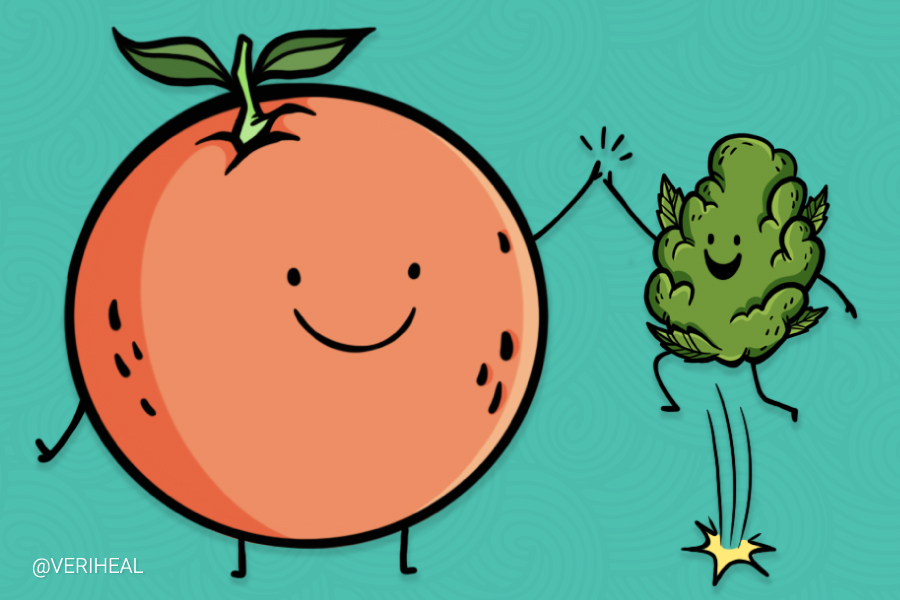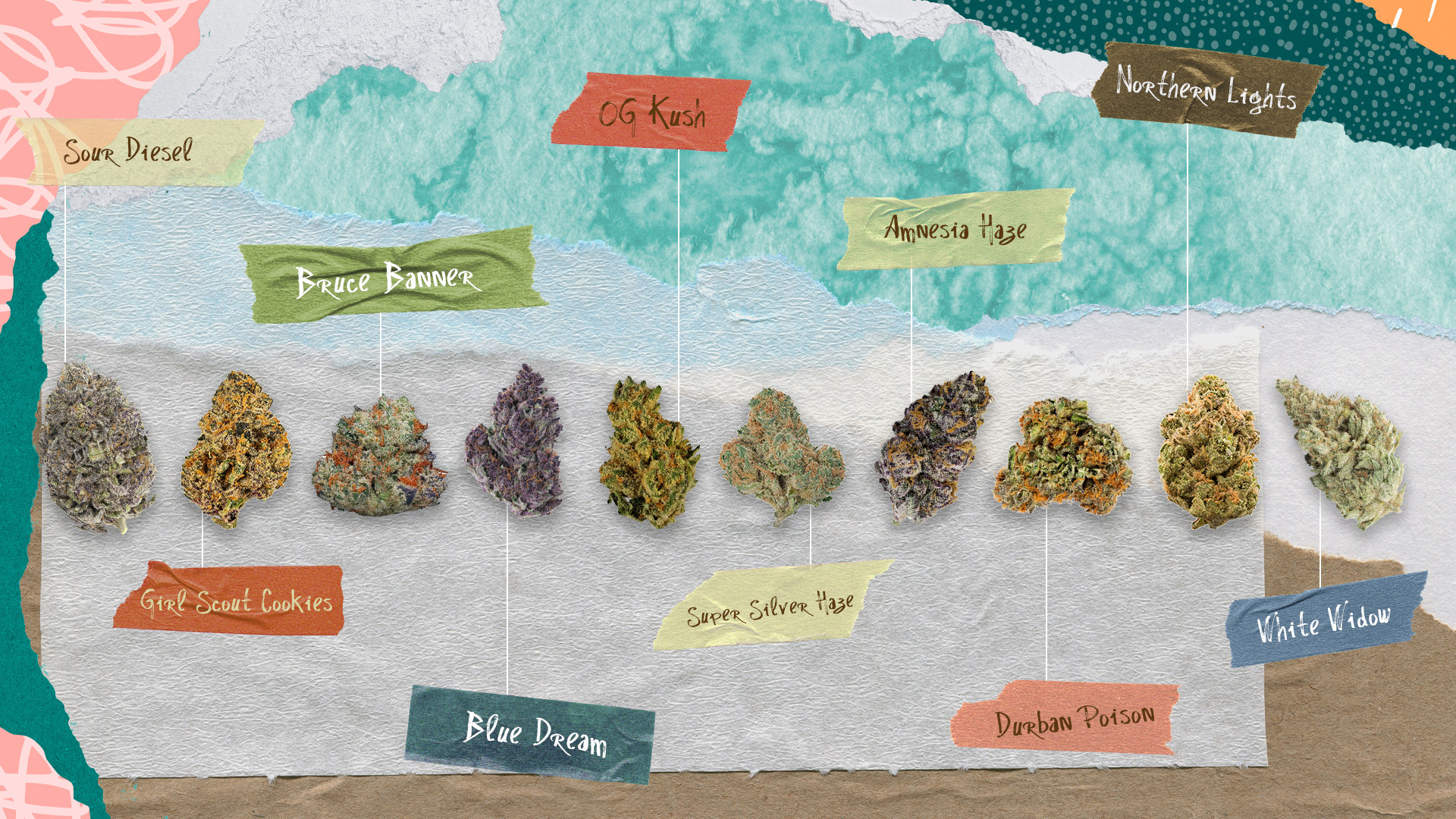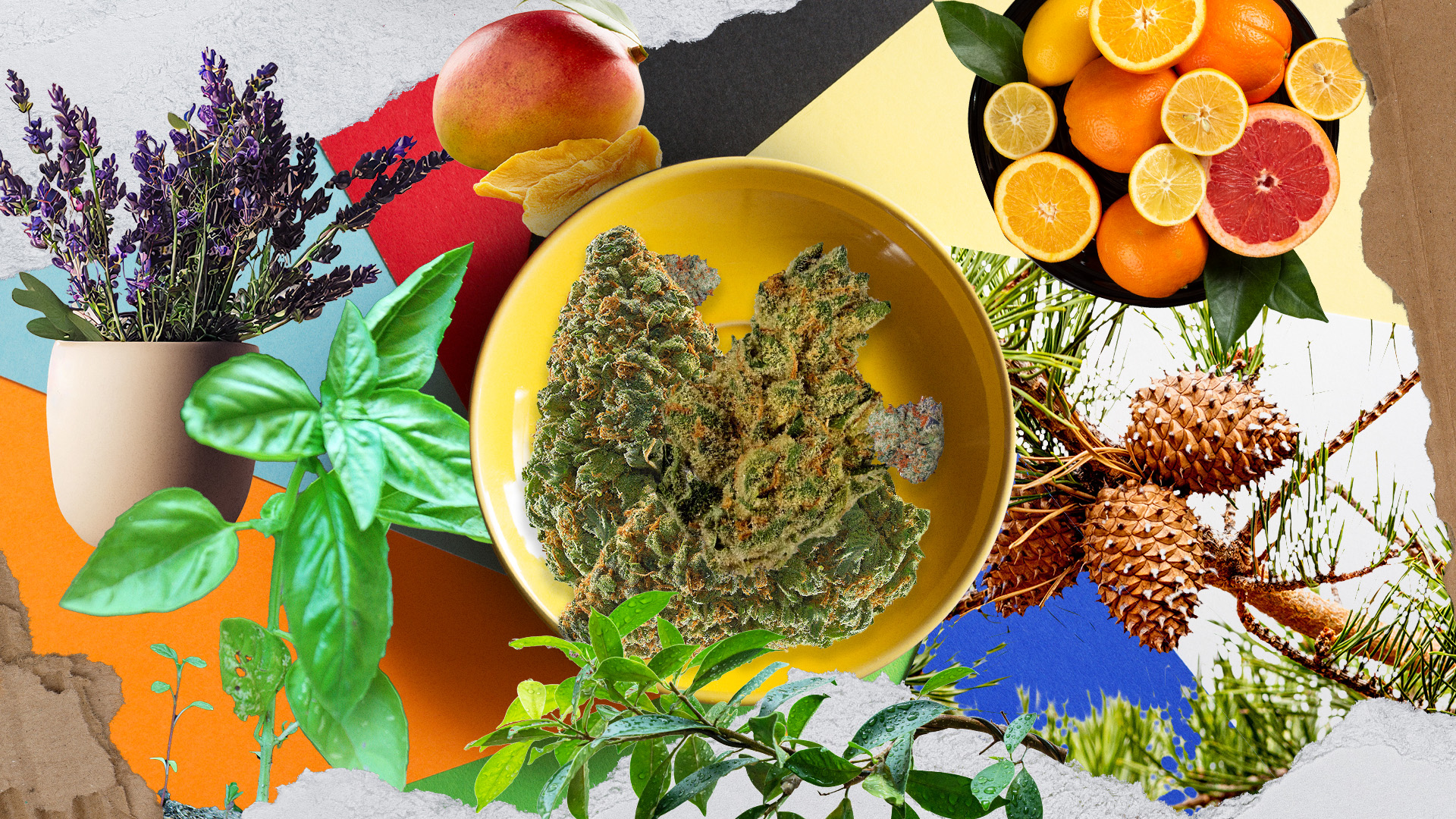CBD, or cannabidiol, is a compound harvested from the cannabis plant. Like its fellow cannabinoid, THC, it can be smoked, vaped, baked into foodstuffs, or even diffused into teas. Unlike THC, CBD is not a psychoactive substance, making it the preferred choice for children receiving medical cannabis treatments or anybody who wishes to partake without feeling a “high.” We’re all familiar with CBD’s two primary sources—the marijuana plant and the hemp plant. The principal difference between these two varieties of cannabis lies in the amount of THC they contain. But now, it seems, there may be another source for CBD. A Japanese company called Hiro International has managed to derive the compound from the peel of an orange.
How Did CBD Get Into Orange Peels?
It’s unclear what biological similarities exist between oranges and cannabis that allowed CBD to show up in the peel of an orange.
What we do know is that the oranges in question were imported from the United States. Hiro International, which was founded as an importer of fruits and juices in 1984, discovered that US-based orange peels contained CBD that was structurally identical to that found in the hemp plant.
The orange-based CBD is free of THC, meaning that users would not feel any psychoactive effects.
What This Means for Japan
The laws governing cannabis in Japan are strict. However, they are specifically focused on THC and on cannabis-derived products. CBD extracted from orange peels falls into neither category, and that’s great news for Japanese citizens who have been interested in exploring the possible benefits of CBD.
Although CBD is generally thought of as a THC-free alternative for cannabis users, the truth is that almost half of the world’s best known CBD products do contain some amount of THC, even if that amount is very low. Because the laws concerning THC are so strict in Japan, it can be difficult for any CBD product to gain a foothold there.
Why You Should Get Your Medical Marijuana Card
Veriheal has satisfied millions of patients nationwide by giving them access to these benefits
- Larger purchase limits
- Peace of mind
- Enhanced legal protection
- Access to higher potency strains
- Save up to 25% on cannabis purchases
- Skip the line at the dispensary
But products derived from these orange peels are completely free of THC. This gives Hiro International and other Japanese companies the ability to experiment with and eventually market these products.
Plans for the Future
Testing is the first phase. The fact that the orange peel derived CBD is structurally identical to that derived from the hemp plant is, of course, a promising place to start. And initial tests revealed that no THC was present, a fact that has researchers very excited about the potential of this substance.
But more exploration remains to be done. Hiro International hopes to conduct tests to establish whether the CBD it has derived from oranges is as effective as that found in the cannabis plant.
There is a reason to be optimistic about this testing. Peak Health, a California based company, is currently marketing a hops-derived CBD product. Like Hiro International’s product, Peak Health’s hops based CBD contains no THC. Testing has shown it to be not only effective but to be more effective at reducing calcification in the heart than cannabis-based alternatives.
In the meantime, Hiro International has already been able to create a line of CBD based products for Japanese consumers. The products available include body lotions, makeup removers, hair care products, and lip balms. Although these products are not yet available for purchase in the United States, it is possible that they will be soon.
The more research we as a global community do into cannabis and its properties, the better equipped we will be to find more sources of the compounds contained within the plant, and by doing so, make them available to the world at large.
Author, Share & Comments
















